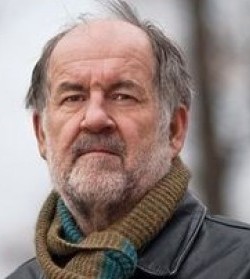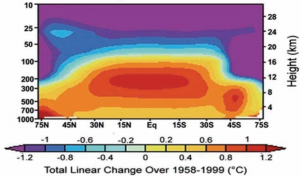This post from wattsupwiththat.com is, IMHO, one of the most important and insightful essays about science ever to appear. It is far too important to be lost amongst the many other posts on the very popular site by Anthony Watts. In the hope that it gets seen some more, I repost it here.
Guest Post by Dr. Robert G. Brown
The following is an “elevated comment” appearing originally in the comments to “A Rare Debate on the ‘Settled Science’ of Climate Change”, a guest essay by Steve Goreham. It is RG Brown’s reply to the Steven Mosher comment partially quoted at the beginning of the essay. This essay has been lightly edited by occasional WUWT contributor Kip Hansen with the author’s permission and subsequently slightly modified with a postscript by RGB.
rgbatduke
October 3, 2014 at 8:41 am
“…debates are rare because science is not a debate, or more specifically, science does not proceed or advance by verbal debates in front of audiences. You can win a debate and be wrong about the science. Debates prove one thing. Folks who engage in them don’t get it, folks who demand them don’t get it and folks who attend them don’t get it”.
Steven Mosher – comment
Um, Steven [Steven Mosher], it is pretty clear that you’ve never been to a major physics meeting that had a section presenting some unsettled science where the organizers had set up two or more scientists with entirely opposing views to give invited talks and participate in a panel just like the one presented. This isn’t “rare”, it is very nearly standard operating procedure to avoid giving the impression that the organizers are favoring one side or the other of the debate. I have not only attended meetings of this sort, I’ve been one of the two parties directly on the firing line (the topic of discussion was a bit esoteric — whether or not a particular expansion of the Green’s function for the Helmholtz or time-independent Schrodinger equation, which comes with a restriction that one argument must be strictly greater than the other in order for the expansion to converge, could be used to integrate over cells that de facto required the expansion to be used out of order). Sounds a bit, err, “mathy”, right, but would you believe that the debate grew so heated that we were almost (most cordially :-) shouting at each other by the end? And not just the primary participants — members of the packed-room audience were up, gesticulating, making pithy observations, validating parts of the math.


 Steve McIntyre, one of the two researchers who exposed the faulty statistics behind the infamous "hockey stick" temperature curve which attempted to write the medieval warm period and the little ice age from the pages of history, has been
Steve McIntyre, one of the two researchers who exposed the faulty statistics behind the infamous "hockey stick" temperature curve which attempted to write the medieval warm period and the little ice age from the pages of history, has been  Model predicts air above the tropics heats up. from the
Model predicts air above the tropics heats up. from the 
Recent comments
8 years 50 weeks ago
9 years 8 weeks ago
9 years 8 weeks ago
9 years 8 weeks ago
9 years 9 weeks ago
9 years 10 weeks ago
9 years 11 weeks ago
9 years 11 weeks ago
9 years 11 weeks ago
9 years 11 weeks ago